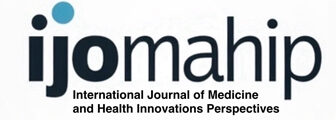IJOMAHIP Published Article Details
The International Journal of Medicine and Health Innovations Perspectives (IJOMAHIP) is an open-access, peer-reviewed journal dedicated to advancing knowledge in the fields of Medicine and Health Sciences fostering innovation, facilitating global knowledge exchange, and supporting collaborative efforts among researchers, clinicians, educators, and healthcare practitioners worldwide.
Research Leadership in Healthcare Settings: A Conversational Search Engine-Aided Concept Analysis
Research leadership in health care settings is increasingly recognized as a pivotal factor influencing institutional effectiveness, innovation, and development both on global and local scales. However, the way people perceive and respond to this concept is unclear mainly because of the difficulties in merging the various definitions that have developed across different fields, especially in healthcare settings. Hence, it is vital to clarify the meaning of “research leadership” and formulate its defining attributes, antecedents, consequences, and practical applications within the healthcare settings. Using the eight-stage concept analysis framework by Walker and Avant (2019) along with a conversational search engine that uses Large Language Models (LLMs) Perplexity AI, as a robust tool for its real- time web search capabilities and ability to provide comprehensive answers, "research leadership" was explored. A thorough literature search was completed covering peer-reviewed articles, full-text publications, and English-language materials from the last decade (2014–2025) from four online sources- EBSCOhost and PubMed databases; via Google Scholar search engine; and the Mendeley article access as well as Oxford, Merriam-Webster and Collins English dictionaries. After excluding articles that did not meet the eligibility criteria, a total of 24 articles were reviewed, and analyzed after until saturation was reached. This extensive literature review revealed key characteristics that emphasized the most frequently used terms associated with the concept. Following Walker and Avant’s methodology (2014; 2019), five defining attributes emerged as significant themes: 1. Strategic Vision and System Improvement; 2. Contextual Adaptation and Implementation; 3. Collaborative and Relational Leadership; 4. Workforce Support and Development; 5. Knowledge Translation and Evidence- Based Practice. Meanwhile, antecedents included: Core research competencies and skills; Supportive environment and adaptive and Ethical leadership styles. Meanwhile, four consequences were: 1. Performance Improvement;2. Stakeholder Success; 3. Adaptable Frameworks; and 4. Knowledge Translation. Lastly, a clearer definition was identified as the ability to empower individuals to spearhead research initiatives that demonstrably improve healthcare delivery and patient outcomes. This leadership is characterized by a strategic vision for system-wide enhancements, a commitment to sustained operational support for effective interventions, collaborative practices that foster team cohesion and engagement, targeted workforce training to develop research capacity, and effective knowledge translation to integrate evidence-based practices into clinical settings.
KEYWORDS: research leadership, healthcare settings, concept analysis, theory development, synthesis

